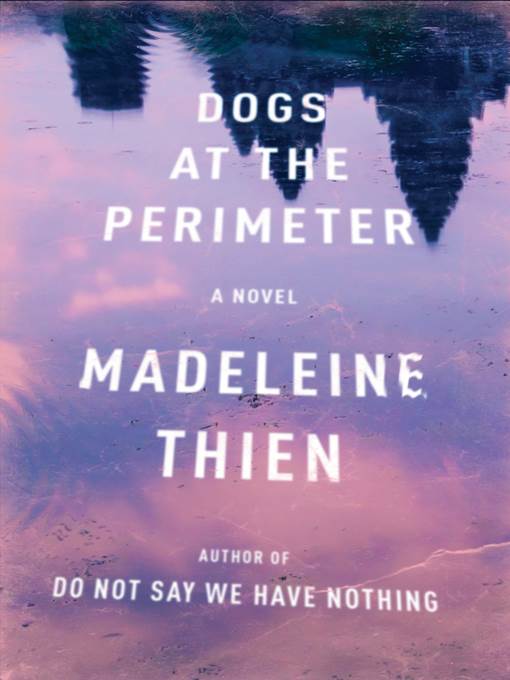
Dogs at the Perimeter
A Novel
کتاب های مرتبط
- اطلاعات
- نقد و بررسی
- دیدگاه کاربران
نقد و بررسی

August 21, 2017
When Janie’s friend and colleague Hiroji disappears from Montreal, Janie’s memories catapult her back to her youth in Cambodia just after the Khmer Rouge revolution. In a long flashback told in the uncertain and terrified voice of a child, she remembers in gruesome but increasingly detached detail her family’s forced relocation from Phnom Penh, the slave labor conditions they endured, and her eventual escape as a refugee. Back in the present day, Janie travels to Laos certain that Hiroji is not dead but rather has gone in search of his lost brother, a Japanese-born Red Cross doctor not heard from since his assignment during the Cambodian Civil War. Her story recedes as Thien fills in the painful story of Hiroji’s brother, whose survival under the brutal regime required him to entirely forget his past. The fragmented focus on two families broken by the revolution leaves both stories hauntingly unfinished, an effective narrative decision. Thien (Do Not Say We Have Nothing) narrates events to effectively mimic the mental breakdown of her characters under duress. This lyrical exploration of the weight war places on its survivors will linger with readers as it sheds light on the atrocities of the Khmer Rouge.

August 1, 2017
Canadian Thien's second novel, newly released in the U.S. after Man Booker Prize finalist Do Not Say We Have Nothing (2016), moves between present-day Canada and Khmer Rouge-era Cambodia as it explores the cost of surviving a genocide.Months before the novel begins, Montreal neurologist Hiroji Matsui, whose Japanese parents came to Canada after World War II, walked out of the research center where he worked and disappeared. Janie, a researcher at the center who arrived in Canada from Cambodia as a refugee when she was 11, is now staying in her friend Hiroji's empty apartment, away from her understanding husband, Navin, and young son, Kiri, while she goes through a psychological, perhaps existential, crisis of her own, haunted by memories of her childhood. The novel's fragmentary, repetitive structure mirrors both the way the past bleeds into the present and how the lives of the characters themselves bleed together. In 1975, Janie was 8, living in Phnom Penh with her middle-class parents and younger brother before the Khmer took over the city. In snatches, she recalls the horrors that followed: her father's disappearance and the rest of the family's struggle to survive unbearable conditions. Within Janie's story are other stories of Cambodians who shift identities--her brother, Sopham, becomes Rithy in creating a new peasant identity; Janie herself becomes Mei--and who become both victims and perpetrators. Meanwhile, adult Janie comes to realize that Hiroji has gone to Cambodia to search for his older brother, James, who went missing while a Red Cross doctor there in 1975. James has his own story of loss and shifting identity after he is taken prisoner and kept alive for his usefulness as a doctor. While both are haunted by the atrocities they experienced, Janie's and James' survival take very different courses. A troubling, difficult read and a worthwhile addition to the growing body of work on the Cambodian holocaust.
COPYRIGHT(2017) Kirkus Reviews, ALL RIGHTS RESERVED.

Starred review from September 1, 2017
Mei, a Cambodian war refugee from Phnom Penh, relates a harrowing story of genocide under the rule of the Khmer Rouge regime. She and her family are torn apart as they are thrust into this reign of terror. Family members "disappear"; food, housing, and medicinal supplies are scarce, making life a daily struggle for survival; and everyone lives in constant fear. Escaping to Canada, Mei becomes Janie, changing her name in a desperate act to start a new life. In stream-of-consciousness style, Canadian author Thien offers a perceptive look into a truly nightmarish world, effectively capturing the essence of someone suffering from prolonged posttraumatic stress. Janie's need for family, memories, and fulfillment of her desires have been superseded by a crushing, despotic regime that kills not only people but souls. VERDICT First published in Canada in 2011 and released here after the success of Do Not Say We Have Nothing, which was short-listed for the Man Booker Prize, this second novel by Thien is a moving, powerful, beautifully written study that illuminates Janie's reality. An important addition to the canon of diaspora and refugee literature.--Lisa Rohrbaugh, Leetonia Community P.L., OH
Copyright 2017 Library Journal, LLC Used with permission.

September 1, 2017
Mei, a Cambodian war refugee from Phnom Penh, relates a harrowing story of genocide under the rule of the Khmer Rouge regime. She and her family are torn apart as they are thrust into this reign of terror. Family members "disappear"; food, housing, and medicinal supplies are scarce, making life a daily struggle for survival; and everyone lives in constant fear. Escaping to Canada, Mei becomes Janie, changing her name in a desperate act to start a new life. In stream-of-consciousness style, Canadian author Thien offers a perceptive look into a truly nightmarish world, effectively capturing the essence of someone suffering from prolonged posttraumatic stress. Janie's need for family, memories, and fulfillment of her desires have been superseded by a crushing, despotic regime that kills not only people but souls. VERDICT First published in Canada in 2011 and released here after the success of Do Not Say We Have Nothing, which was short-listed for the Man Booker Prize, this second novel by Thien is a moving, powerful, beautifully written study that illuminates Janie's reality. An important addition to the canon of diaspora and refugee literature.--Lisa Rohrbaugh, Leetonia Community P.L., OH
Copyright 2017 Library Journal, LLC Used with permission.

























دیدگاه کاربران